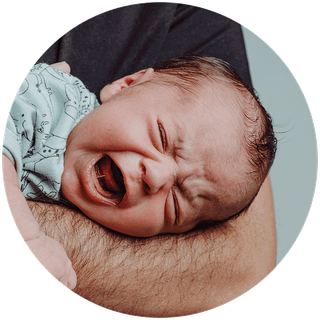Constipation and breastfeeding
Constipation makes it more difficult for your baby to have a poo. It's often caused by their diet and is easy to treat at home.
Symptoms of constipation
The symptoms of constipation in your baby can include:
- pooing fewer than 3 times in a week
- finding it difficult to poo, and poos that are larger than usual
- dry, hard, lumpy or pellet-like poos
- unusually smelly wind and poo
- your baby may be less hungry than usual
- their tummy might feel firm
Other signs of constipation can include your baby lacking energy and being a bit grumpy.
How often should my baby poo?
Because breastmilk is a natural laxative, a baby aged between 4 days and 6 weeks who is breastfeeding well should pass at least 2 yellow poos a day.
If your baby has not pooed in the past 24 to 48 hours, speak to your midwife or health visitor as this may mean they are not getting enough milk.
In the beginning, your baby will pass a black, tar-like poo called meconium. By day 3, this should be changing to a lighter, loose, greenish poo.
Breastfed babies aged 6 weeks or older may poo less often. You will quickly get used to your baby's bowel movements so will be able to tell what's normal for them.
Causes of constipation
Change in diet
It's quite common for your baby to become constipated when they start taking first infant formula, which is harder to digest than breast milk, or eating processed foods.
This is just because their body is learning how to cope with digesting new things.
Dehydration
Constipation can be caused by a lack of fluids.
There are various reasons why your baby may not be getting enough fluids:
- they may be teething and finding it uncomfortable
- illness – like a cold, a throat or ear infection, for example
- if they are older, they may not drinking enough fluids with their food
Lack of fluids can make your baby's poo harder and more difficult to push out.
Lack of fibre
In older babies, constipation can be caused by not getting enough fibre (such as fruit, vegetables and cereals) in their diet.
For advice on which foods to include in your child's diet, have a look at what to feed your baby.

Tips on treating constipation
Here are some tips on helping relieve constipation at home:
- lie your baby down and gently move their legs like they're riding a bicycle – this can help get things moving
- if your baby is happy lying down, give them a gentle tummy massage
- if your baby is also having formula, try giving them extra water between some feeds
- if your baby is on solids, make sure they're getting enough fibre – apples, pears and prunes are particularly good for constipation
It may take a few days to get moving again, but if things do not improve, speak to your health visitor or GP.
Your GP may prescribe a laxative, or want to double-check that it's not being caused by any underlying medical conditions.


Breastfeeding Friend from Start for Life
The Breastfeeding Friend, a digital tool from Start for Life, has lots of useful information and expert advice to share with you – and because it's a digital tool, you can access it 24/7.
Help and support
For confidential breastfeeding information and support, call the National Breastfeeding Helpline on 0300 100 0212.
Lines are open 24 hours a day, every day of the year.
